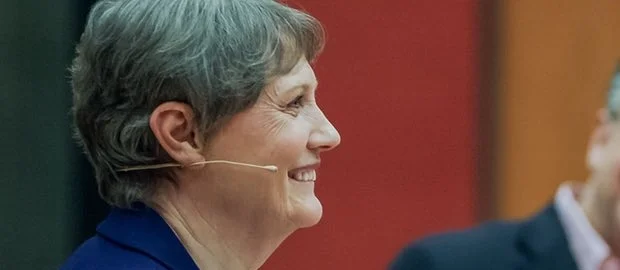Elle Hunt from The Guardian spoke to Helen about the glass ceiling in the UN, as well as a broader discussion of her entire political career.
"In the United Nations’ 72-year history, eight of its nine secretaries general have been decided behind closed doors by a few powerful countries. But not the ninth. Last year’s appointment process resembled American Idol: a public-facing contest with a strong social media component and a side of drama and double-crossing.
When the process to replace Ban Ki-moon got under way in April 2016, it was said to be unprecedented in its transparency. Helen Clark, one of the eight unsuccessful challengers, is quick to put that into context. “The ‘transparency’ – I’ll put that in quotation marks – I don’t think that had any impact on the outcome,” she says. “What it did was expose how opaque the real process was.”
As head of the UN development program, Clark had been considered a strong contender when she announced her candidacy, particularly given the groundswell of support for a female leader. By 30 September – the week before the former Portuguese prime minister António Guterres was confirmed in the top job – her chances had reportedly dwindled to nil.
“I won the public vote, I won the social media scene, I won the staff votes – all of that, but it didn’t matter at all,” says Clark pragmatically, without bitterness. “Clearly, the security council wasn’t looking for someone like me, from a small, independent-minded country, having been an independent-minded leader, who looks at the evidence and makes decisions accordingly.
“That’s fine. That’s the outcome.”
Clark’s experience of the process is the subject of a documentary, My Year with Helen, that screened last weekend as part of the Sydney film festival. What thoughts or feelings did she have, watching her failed bid unfold again, from within the audience?
“You know, I’ve always had a capacity to move on from things very fast,” she says. “That was a pretty intense six-month period and at the end of it I shut the door, went home to see my family and got on with life.”"
